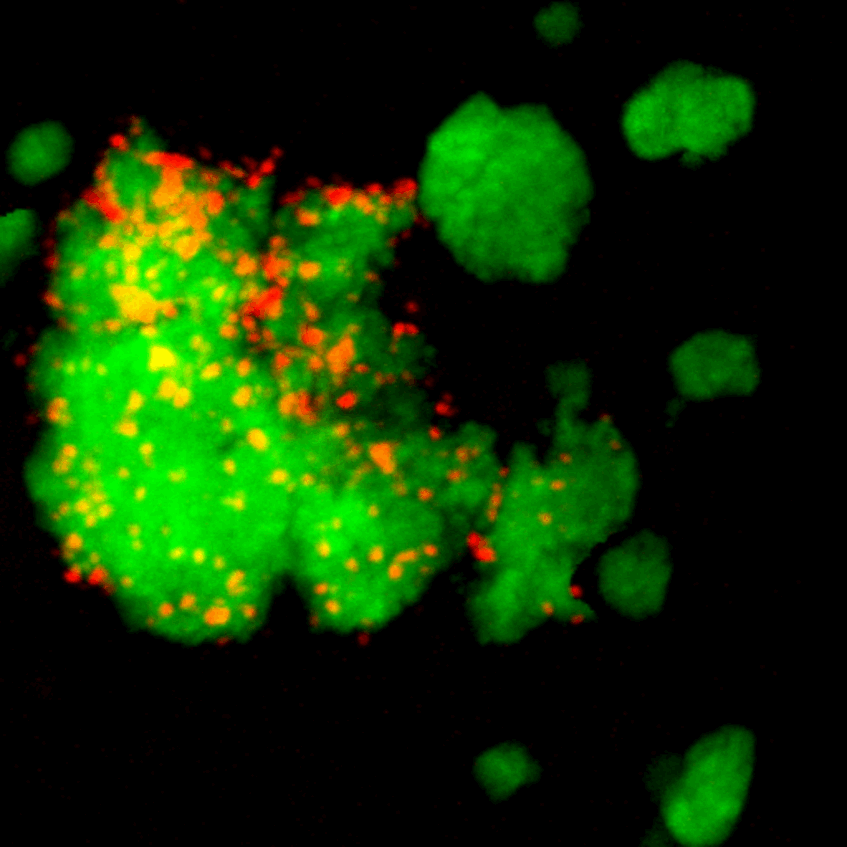Microbe-microbe interactions

Complex microbiomes are shaped by a variety of functionally distinct interactions among microorganisms. Known interactions include the exchange of metabolites like amino acids and vitamins, syntrophic substrate degradation, molecular signaling, stress mitigation, competition, predation, and inter-microbial warfare. These diverse interactions lead to the formation of interaction networks that are vital for nutrition, metabolism, and other aspects of survival and growth in environmental and host-associated microbiomes. Our research aims to understand these networks, as such insights are essential to maintain ecosystem functions and to manipulate communities in a targeted manner.
Additionally, we investigate microbial interactions involving nitrifying organisms. As chemolithoautotrophic nitrifiers act as primary producers, heterotrophic microbes can consume their biomass or use organic compounds produced by nitrifiers. Conversely, nitrifiers may rely on other microbes for stress alleviation, vitamin production, and other possibly undiscovered reasons. Studying these interactions provides deeper insights into the ecology of nitrifying organisms beyond mere nitrification, and into the mechanisms driving the population dynamics of nitrifiers and their microbial partners.
Recent project: Microbial interaction mechanisms and networks in complex microbiomes
This project is part of the Cluster of Excellence "Microbiomes Drive Planetary Health" that is funded by the Austrian Science Fund (FWF).
We employ complex microbiomes from wastewater treatment plants and the human small intestine as model systems to reconstruct microbial interaction networks using molecular data on microbiome composition. Hypothesized interactions are verified and analyzed through targeted experiments. In these studies, we utilize isotope labeling, chemical imaging, and 'omics' techniques to observe and specifically manipulate microbe-microbe interactions in situ.
Collaboration partners: Christine Moissl-Eichinger (Medical University of Graz), David Berry, Christina Kaiser, Petra Pjevac, Thomas Rattei, Michael Wagner (University of Vienna), Peter Hinterdorfer (University Linz), Bernhard Lendl (TU Vienna)
Selected publications on this topic:
- Dolinsek J, Lagkouvardos I, Wanek W, Wagner M, Daims H. 2013. Interactions of nitrifying bacteria and heterotrophs: Identification of a Micavibrio-like, putative predator of Nitrospira. Appl. Environ. Microbiol. 79: 2027-2037 https://doi.org/10.1128/aem.03408-12
